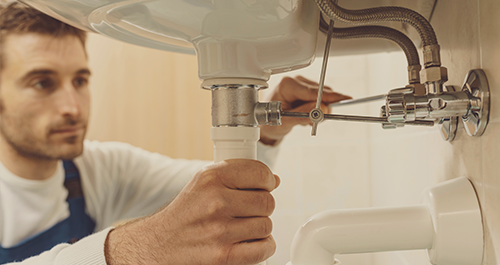As the old saying goes, prevention is better than cure, and this is especially true when it comes to drain repairs and maintenance. While no homeowner wants to deal with blocked drains, burst pipes, and emergency calls to the plumber, such events are unfortunately inevitable when you overlook simple maintenance. Fortunately, most drainage disasters can be prevented when you adopt a few smart and simple steps.
In this blog, the team at Convic Australia, as a supplier of premier civil construction material, will be walking you through some of the best preventative steps that can help keep your drains clean and problem-free all year round.
Be aware of early warning signs.
Knowing what signs you need to look out for is a major part of addressing any drainage issue that might manifest. When your drain system is experiencing a problem, you are bound to witness tell-tale signs such as slow drainage, gurgling sounds, and unpleasant smells. The sooner you notice any one or more of these conditions, the more time you will have to address the issue and prevent a major breakdown.
Do not pour grease or oil down the drain.
Cooking fats and grease are more viscous than other liquids and can quickly cool in the cooler temperatures inside the pipes, leading to stubborn clogs. Instead, we recommend that you pour them into a separate container, use an oil solidifier, and dispose of it as part of the biodegradable garbage.
Use drain strainers.
Over time, the food scraps, hair, nails, and other debris they wash down the drain can form buildup to cause blocks. One of the most cost-effective and efficient ways to prevent these build-ups is to use drain strainers. That way, you will be able to separately dispose of these materials before they enter the drainage system.
Be careful of what you flush down the toilet.
Your toilets are designed to handle the flushing of human waste and toilet paper. Products such as sanitary pads and nappies are not designed to be flushable, and even if you think the item is flushed, it is most likely to have gotten stuck somewhere down the line. Instead, have a separate bin in your bathroom to dispose of used toiletries.
Rinse the drains with warm water/baking soda.
Make it a habit to rinse the drains with warm soapy water or with a baking soda and vinegar solution. These are able to naturally clean your pipes, dislodge small buildups, and get rid of most foul odours. They are also better than most chemical alternatives since they do the cleanup without damaging the pipes.
Schedule periodic professional maintenance.
Even if you were to diligently maintain your pipes and keep your drains clean, you should have a licenced plumber come inspect and professionally clean your drains. Your combined efforts will make sure that your drains remain in the best condition for a longer duration.
Conclusion
Actively engaging in preventative maintenance is a good way to prevent blocks in your drain system. However, there will always come a time for you to engage a professional to inspect and possibly repair your drainage system. If you need to repair your system, you would want your plumber to use the best construction material that money can buy, and you don’t need to look far when you have Convic Australia. We are a leading provider of high-quality construction material for civil, rail, telecommunications, power, and construction projects all across Australia, and we believe that we’ll be your one-stop shop for all your construction needs.
Keep an eye for more latest news & updates on Next Home!
